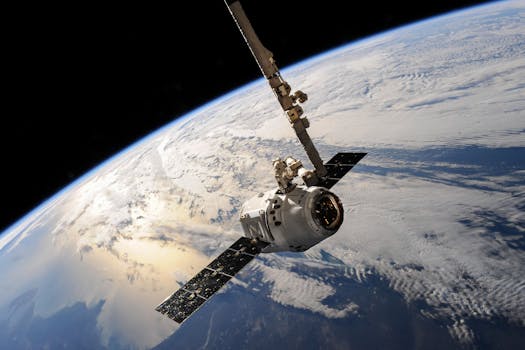The Future of Satellites: Revolutionizing Global Connectivity
The future of satellites is poised to revolutionize global connectivity, enabling faster and more reliable communication networks. With advancements in space technology, satellites are becoming increasingly important for a wide range of applications, from navigation and communication to Earth observation and scientific research.

The Future of Satellites: Revolutionizing Global Connectivity
The future of satellites is poised to revolutionize global connectivity, enabling faster and more reliable communication networks. With advancements in space technology, satellites are becoming increasingly important for a wide range of applications, from navigation and communication to Earth observation and scientific research. As the demand for global connectivity continues to grow, the role of satellites in providing internet access, communication services, and other critical applications will become even more vital.
Introduction to the Future of Satellites
Satellites have been a crucial part of modern technology for decades, providing a wide range of services that are essential for daily life. From GPS navigation to television broadcasting, satellites play a vital role in connecting people and communities around the world. However, the future of satellites holds even greater promise, with advances in technology enabling the development of smaller, more efficient, and more powerful satellites. These next-generation satellites will be capable of providing faster and more reliable communication networks, enabling new applications and services that will transform the way we live and work.
Advances in Satellite Technology
One of the key drivers of the future of satellites is the rapid advancement of space technology. New materials, designs, and manufacturing techniques are enabling the development of smaller and more efficient satellites, which can be launched at a lower cost and with greater frequency. This is making it possible for companies and organizations to launch constellations of satellites, providing global coverage and enabling new applications such as satellite-based internet services. Additionally, advances in propulsion systems and power generation are enabling satellites to operate for longer periods and to travel further distances, expanding their range and capabilities.
Another important trend in the future of satellites is the increasing use of reusable launch vehicles. Companies such as SpaceX and Blue Origin are developing launch vehicles that can be reused multiple times, significantly reducing the cost of access to space. This is making it possible for more companies and organizations to launch satellites, and is driving innovation and competition in the space industry. As the cost of launch decreases, the number of satellites in orbit is increasing, providing more opportunities for research, communication, and other applications.
Applications of the Future of Satellites
The future of satellites holds a wide range of applications, from communication and navigation to Earth observation and scientific research. One of the most promising areas is satellite-based internet services, which have the potential to provide fast and reliable internet access to remote and underserved communities around the world. Companies such as OneWeb and Amazon’s Kuiper Systems are launching constellations of satellites to provide global internet coverage, which will enable new applications such as online education, telemedicine, and e-commerce.
Another important application of the future of satellites is Earth observation, which involves using satellites to monitor the Earth’s environment, climate, and natural resources. Satellites can provide critical data on deforestation, ocean health, and climate change, enabling policymakers and researchers to make informed decisions about the management of the planet. Additionally, satellites can be used for disaster response and recovery, providing critical information and communication services during emergencies.
Conclusion
In conclusion, the future of satellites is poised to revolutionize global connectivity, enabling faster and more reliable communication networks. With advancements in space technology, satellites are becoming increasingly important for a wide range of applications, from navigation and communication to Earth observation and scientific research. As the demand for global connectivity continues to grow, the role of satellites in providing internet access, communication services, and other critical applications will become even more vital. With the rapid advancement of space technology and the increasing use of reusable launch vehicles, the future of satellites holds great promise for innovation and transformation.







